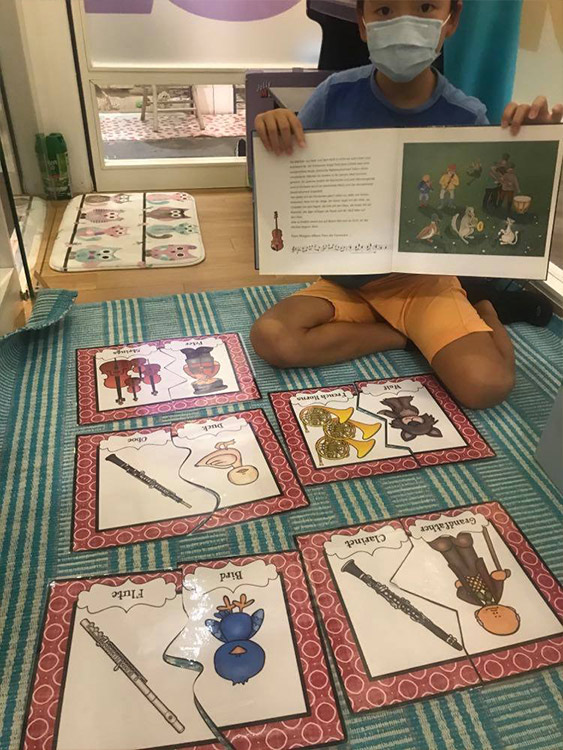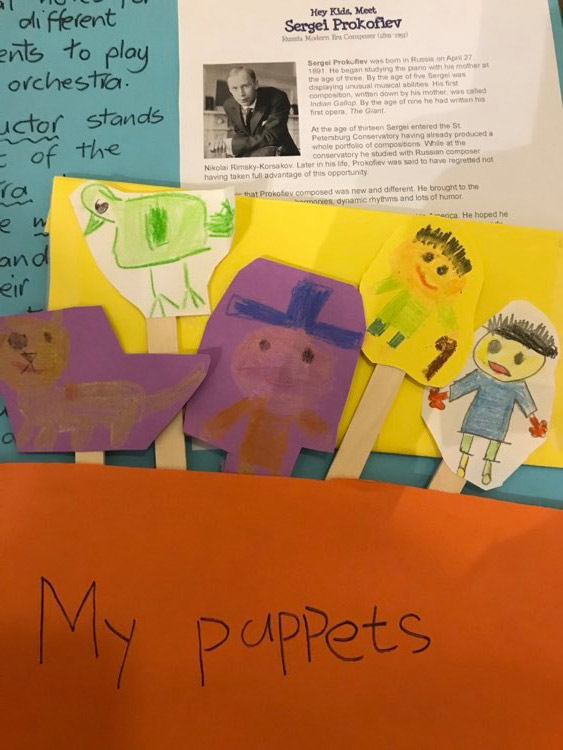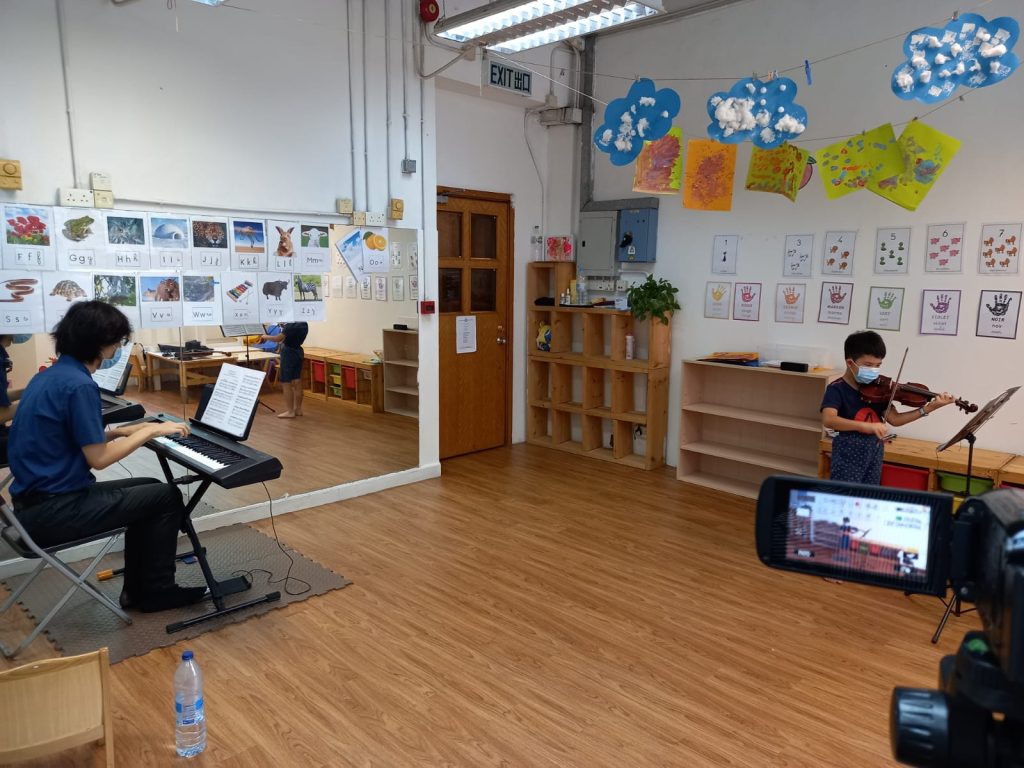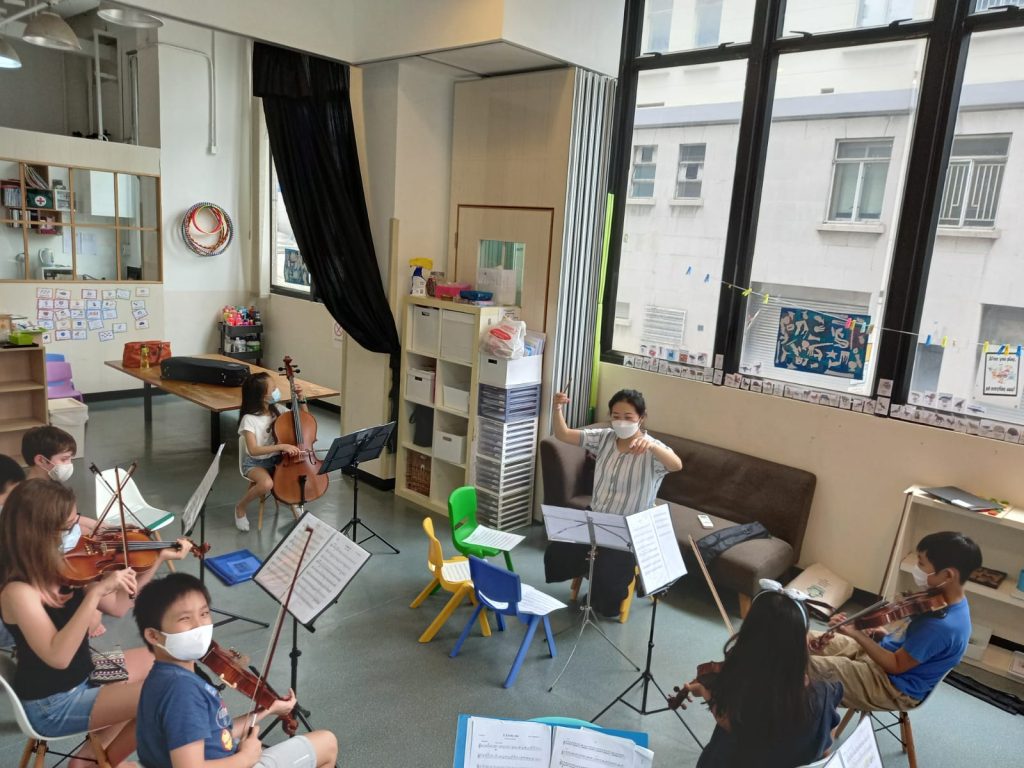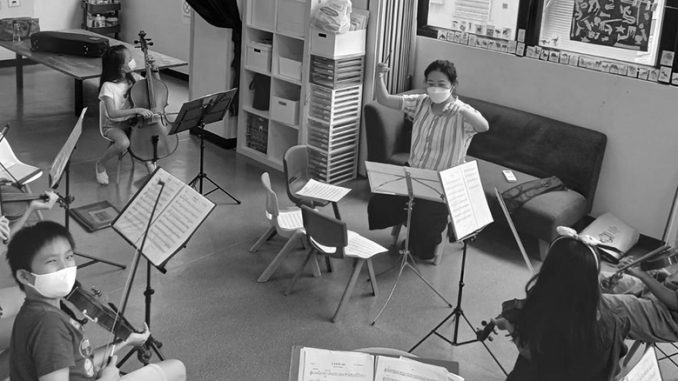
The article describes what the impact of the COVID-19 pandemic has been on our operations within the JSBM (Johan Sebastian Bach Music Academy). JSBM is an Austrian inspired Music School based in Hong Kong where the aim is to promote music pedagogy as part of a life-long education to improve the quality of life in our community. The article shows also how a small, HK private music school, which is not government funded and therefore fully depends on market forces, could survive during the pandemic. As such, JSBM was forced to offer new, innovative educational formats in order to comply with the government regulations on one hand but nevertheless still be able to continue with daily operations on the other.
Everything began in January 2020, when the first terrifying news about a new virus in China hit the headlines of newspapers around the globe. JSBM was, at the time on tour in Europe, as our student orchestra flew to Vienna on January 10th. The memories of the New Year celebrations and goodwill wishes were still very fresh in our heart and minds so we could hardly imagine that the COVID-19 news would persist in the headlines for the rest of the year.
During our concert tour in Austria, we gave two concerts – one in Eggenburg on Jan 17th and one in Vienna on Jan 19th. We also visited the Lutheran primary school and exchanged musical experiences with the students there. We were following updates about the virus every day on the news. We knew from our families and friends in Hong Kong that things were getting worse, however we still did not want to believe that very soon the virus would spread to Europe too! It seemed that our group was not the only one that was not especially cautious about the new virus. Neither was the airport when entering then later leaving Austria on February 1st 2020. There were no measures for checking passengers’ temperature, not to mention masks or any other personal protective equipment.
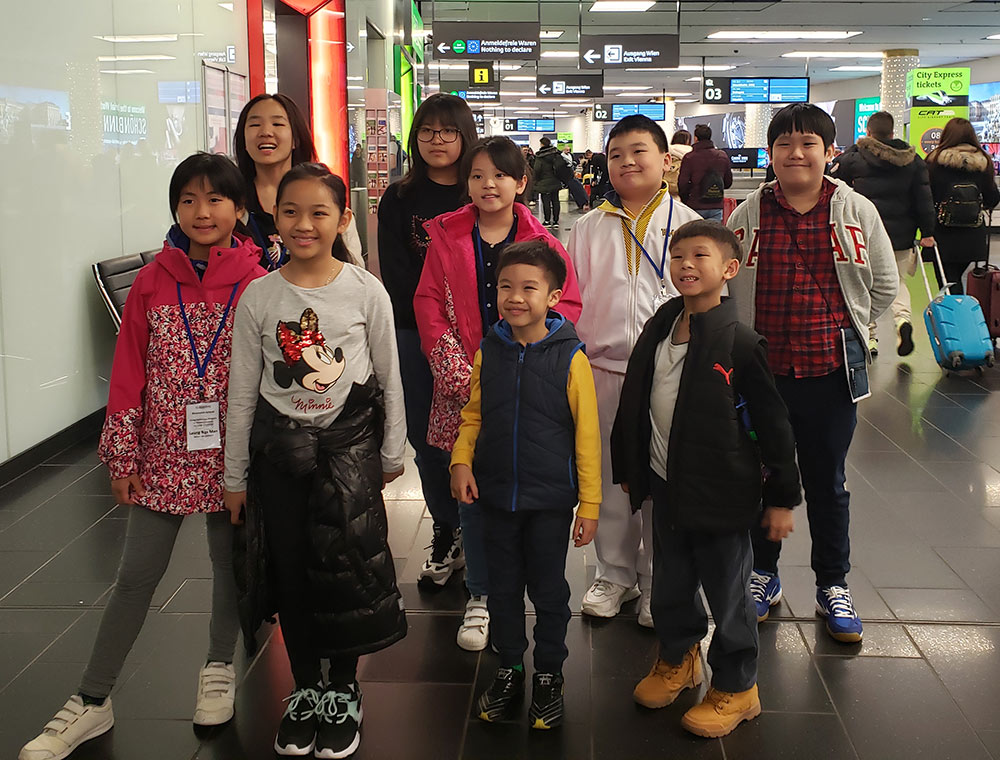
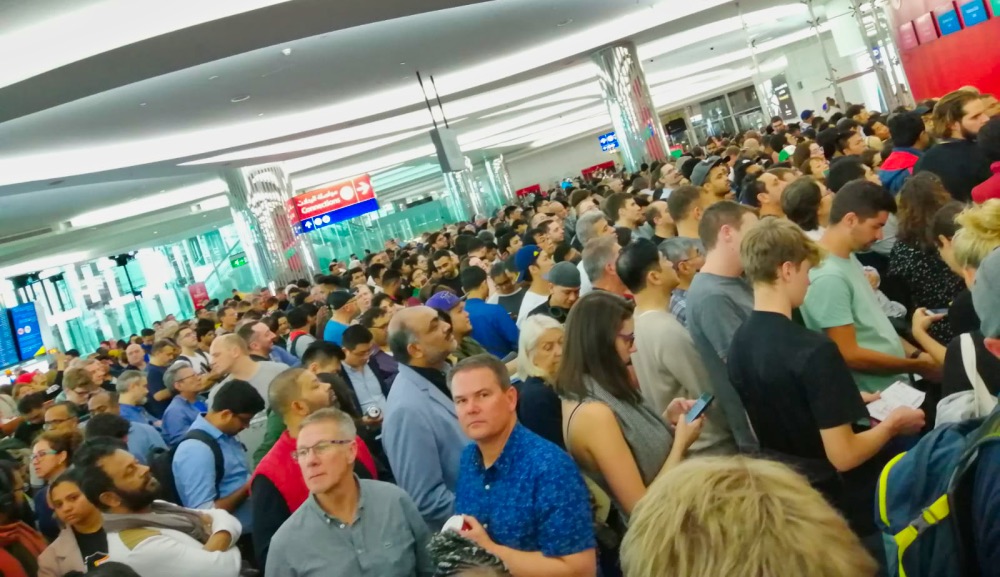
About Our Students – Also Those Outside Hong Kong
Many of our students, who went to China to celebrate the Chinese New Year with their relatives, were stuck there and could not get back to Hong Kong (as you may recall, the winter of 2020 saw China imposinglockdowns on large populated areas in order to control the spread of the virus). As of now (September 2020), most of our students who went to Mainland China are still there and are can only have online lessons with our tutors. For those students who normally go to school in Hong Kong, but became stuck in China, the last six months have been particularly challenging. One could only imagine how difficult it is to be separated from one’s daily routine for such a long period of time. While the online school became the “new normal”, being suddenly separate from friends and classmates has made many of our students anxious. We, as a music school, encouraged our students to join local orchestras, choirs or engage in sports activities in order to meet new friends and fill in their free time with helpful activities. For our students being unable to return to Hong Kong from other countries, particularly from Europe, the time difference was yet another problem, which made it even more difficult to follow up their online music school lessons. In an effort to react to their needs, we set up flexible time frames and adjusted the duration arrangements of their lessons.
Our Students in Hong Kong
In Hong Kong in February 2020, the Corona Virus had already paralysed the city and all school activities had been cancelled until further notice. Since JSBM premises are located in a small shopping and workshops mall called SOLO. its setting allows only private and/ or semi-private lessons, this means we were technically allowed to teach there. However, most students were not willing to leave their homes following government recommendations.
Later in April 2020, the situation improved and many of our students came back for lessons. Our centre faced new challenges: since the ordinary schools were still closed at that junction, our students had plenty of free time and were eager to continue learning as they had stayed home for the whole winter. Additionally, since all family members were mostly at home too, conflicts triggered by the confined and unusual home situation had broken out. Thus, parents and students alike were looking for reasonable opportunities to learn outside of home and if possible, in live modus.
JSBM worked out, in partnership with a former British school Principal and teacher of English in HK, a half-day curriculum focused on language and music learning, together with some time for freely chosen activities and trips to a nearby park. Originally, what was thought to be an English and Music School, has since been expanded to Japanese & Music as well as German & Music Half-Day School. With fairly limited resources, we successfully met the needs of the community and filled the educational gap caused by the school suspension.
A very special point is how we collaborated in presenting our newly devised programme: the children learned about some of the most famous musical classics for children such as Prokofiev’s ‘Peter and the Wolf’ by Voigt, E. (2017) and Smetana’s ‘The Moldau’ by Simsa & Eisenburger (2014) during the language element. They made puppets or 3D clay scenes to re-tell each storyline vividly.
During the music lessons they had the chance to experience and to play music written by Prokofiev or Smetana, to name but two of our approaches. The instruments representing different characters, the melodic phrasing and representation of the phenomenona within nature in the story lines are just a few things from the musical journey, which the children were exposed to whilst attending our studio.
Another point worth describing is how we framed it, as our facilities are not really designed for educational events. Also, we needed to switch rooms between the music and language sessions to comply with social distancing measures, i.e. while 2 students had their language session, another had his or her music lesson. Snacks were eaten together though as this was our social time when we exchanged information about what we had been learning or what was coming next. As tutors, we reflected on our students’ responses.
When the weather was suitable for outside activities, we went to the nearby park to fly kites, play ball games and ‘Hide and Seek’ plus many other things. On rainy days we played board games inside Solo. This is only a small insight into some of the activities which we organised during the pandemic period. They were designed to accommodate the largest number of students allowed by the Government’s COVID-19 regulations, with suitable and meaningful music and language activities. The programme was not commercial at all, as we could not accept enough children to make it profitable. However, we could still cover our rental costs and nominal teachers’ salaries, while the students were learning and having fun in a setting not comparable to anywhere else.
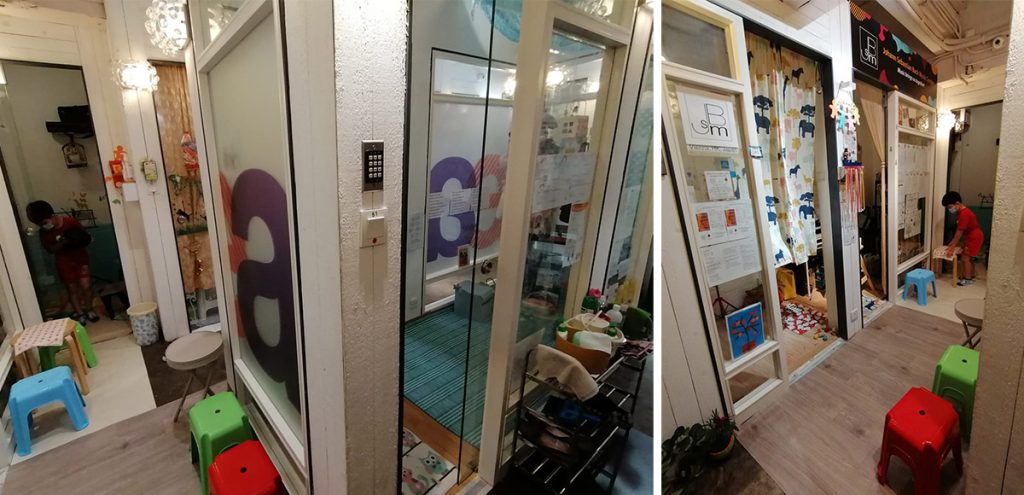
A 45-minute playgroup was also on offer for children aged 1 to 3 years old who were accompanied by one adult. The parents were fascinated especially as they were learning a lot too, since most of them have had little exposure to classical music either. For instance, each movement of the ‘Carnival of the Animals’ by Saint Saens gave our youngest students an opportunity to create their own dance and to transform themselves into donkeys, monkeys, elephants, lions or even swans. The children improvised their own rhythm patterns using drums or shakers, and other child-friendly hand percussion instruments. As our Music & Language school proved to be extremely popular among our students and their parents, we hope that it can be a model for the future as a holiday school, for example. Most of the programmes are still running and will continue to do so during the remainder of the academic year. However, now with schools gradually resuming in Hong Kong, we shall need to adjust our timetables and schedule to complement the schools’ calendars.
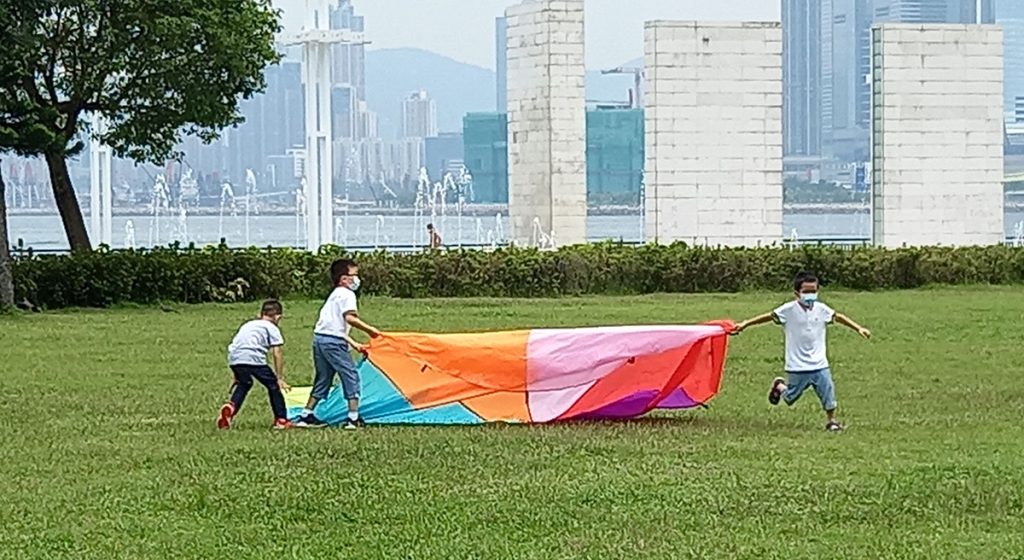
JSBM’s Gifted Framework and Music Competition
For our keenest young musicians, we organised an internal competition, whereby the purpose was to strengthen pupils’ confidence in their performance abilities. The internal JSBM Competition was a meaningful middle step on the preparation path for other national or international competitions. Unlike many other competitions, there were no winners or losers, but instead, we found something praiseworthy in each performance. The child’s confidence was therefore enhanced by this approach and they received a ‘certificate of participation’ which highlighted an element of their performance’s strength. Our ultimate goal is to further enrich our programme for gifted young musicians in order to support and assist those of our students who are dedicated to becoming professional musicians in the future.
Last but not least, during the pandemic, JSBM started its own ‘gifted music education framework’ in co-operation with City Chamber Orchestra of Hong Kong. The students, who have been accepted to take part in the programme, will get first-hand experience of being professional musicians with practical workshops, rehearsals, and performances. We hope therefore, they will make decision on their future career based on their real involvement and not based purely on dreams and hopes. If successful, the programme participants will have the choice to continue their education either with our partners in Vienna or to go further with JSBM in Hong Kong.
International Partnerships During the Pandemic
As an international music school, JSBM is part of a world-wide network of partners such as Johann Sebastian Bach Musikschule in Vienna, the Education University in Tanjong Malim (UPSI), the Makoto Kindergarten in Utsunomiya, the Princeton International School in Shenzhen – to name only a few.
Additionally, JSBM sent a postdoctoral researcher to UPSI in Tanjong Malim, who is now working on creating a framework for gifted music students. This has included field research work not only at UPSI in Tanjong Malim, but also at the premises of Permata Muzik in Kuala Lumpur, and also at Sekolah Seni Art Schools in Kunming and Kuala Lumpur.
Besides this, JSBM is introducing a comprehensive Japanese method for Early Years Education in Hong Kong in partnership with Makoto Kindergarten from Utsunomiya, Japan. The method is based on the traditions of Japanese Early Years Pedagogy in combination with a Hong Kong style playgroup curriculum. Teaching music is an important part of the method, as well as the multi-lingual environment.
Also, JSBM is a partner of Princeton International School in Shenzhen, China, where work is ongoing regarding a through-train music curriculum from kindergarten to secondary school. The intention is to combine Western music traditions with East and South East Asian music teaching concepts, as described by Manny Brand in ‘The Teaching of Music in Nine Asian Nations’ (2006).
The pandemic year gave us time to concentrate on our work for the local community as well as to re-think our international involvement. Since our manpower and resources are very limited, we decided to summarise our experience in a volume dedicated to gifted music education as we have experienced it in Europe and Asia. Our team was lucky enough to have interviewed the director of JSBM Dr. Hanns Stekel, who is one of the founders of the gifted musician framework “Young Masters” and introduced to us in Vienna during our last tour to Europe in January 2020. A few months earlier, the same research team was in Malaysia and conducted interviews with a number of musicians, music teachers and administrators. Now, during the pandemic, we focus on the evaluation of our research and a comparison between Austrian and Malaysian music gifted education is on the way.
Instead of Conclusion
Unfortunately, it is too early to offer conclusion at this time; we do not know how long the pandemic will last. Our music school has shown that it is resilient during a crisis and in difficult times our value in the community is even growing. It means, that the importance of the music school in the “normal situation” as an institution, is often underestimated. I hope our performance during the pandemic as well as the performances of the other similar small enterprises, who have helped the community through this difficult time, will make the local government more thoughtful about what really matters and supportive of our cause.
Nikolay Demerdzhiev
Johann Sebastian Bach Music Academy (Hong Kong)
Nikolay Demerdzhiev is a postdoctoral researcher at Universiti Pendidikan Sultan Idris, Malaysia. He received his Masters of Music in Viola Pedagogy and Viola Performance at the University of Arts in Graz, Austria and his PhD in Musicology from the University of Music in Vienna. His main expertise is music school policy and gifted music education. As an experienced orchestral and chamber musician, he has performed with Maribor Philharmonic Orchestra (Slovenia), Macau Philharmonic Orchestra and the Malaysian Philharmonic Orchestra, among others. He is also an author of several publications on music educational research. He is now head of Johann Sebastian Bach Music Academy in Hong Kong.


